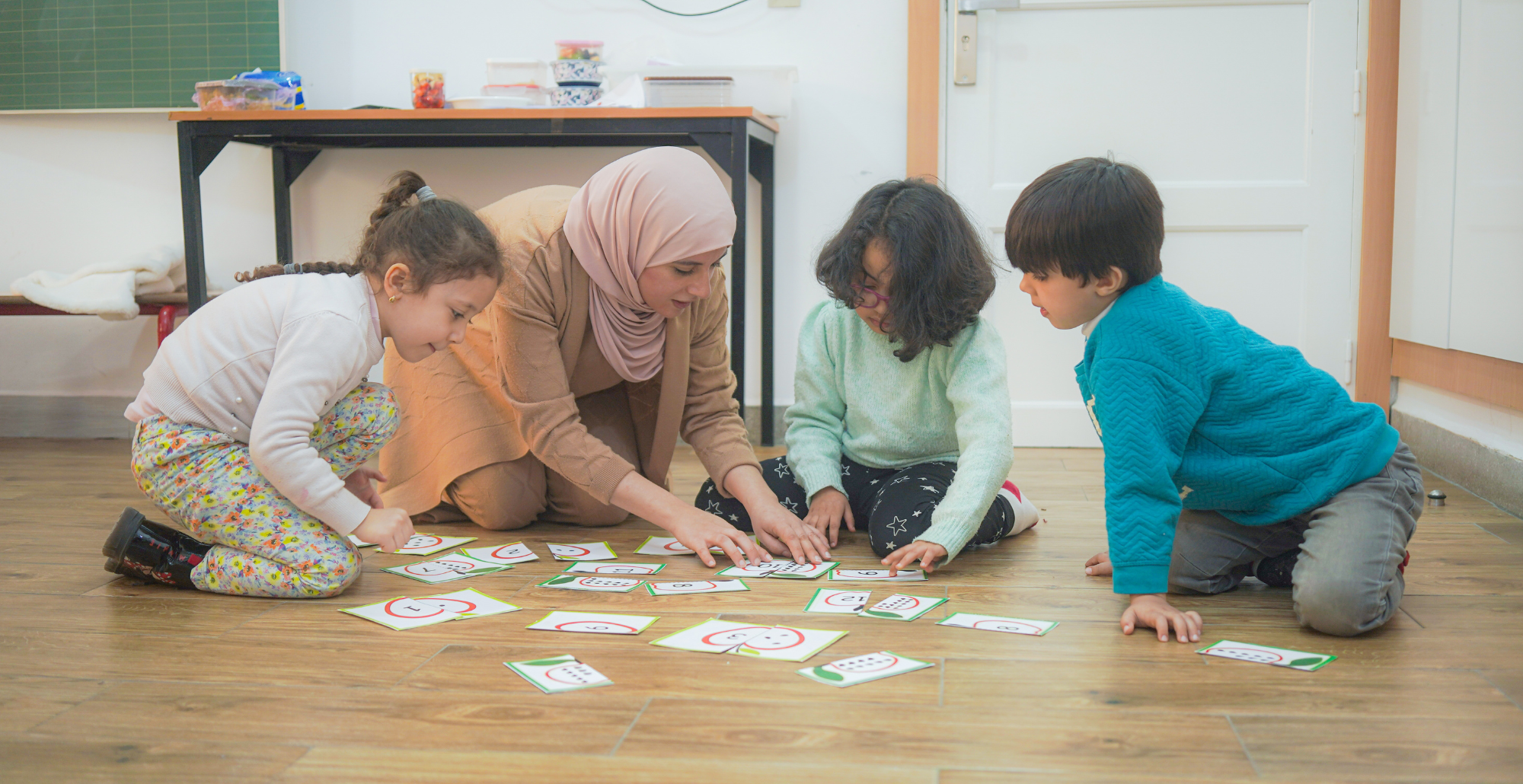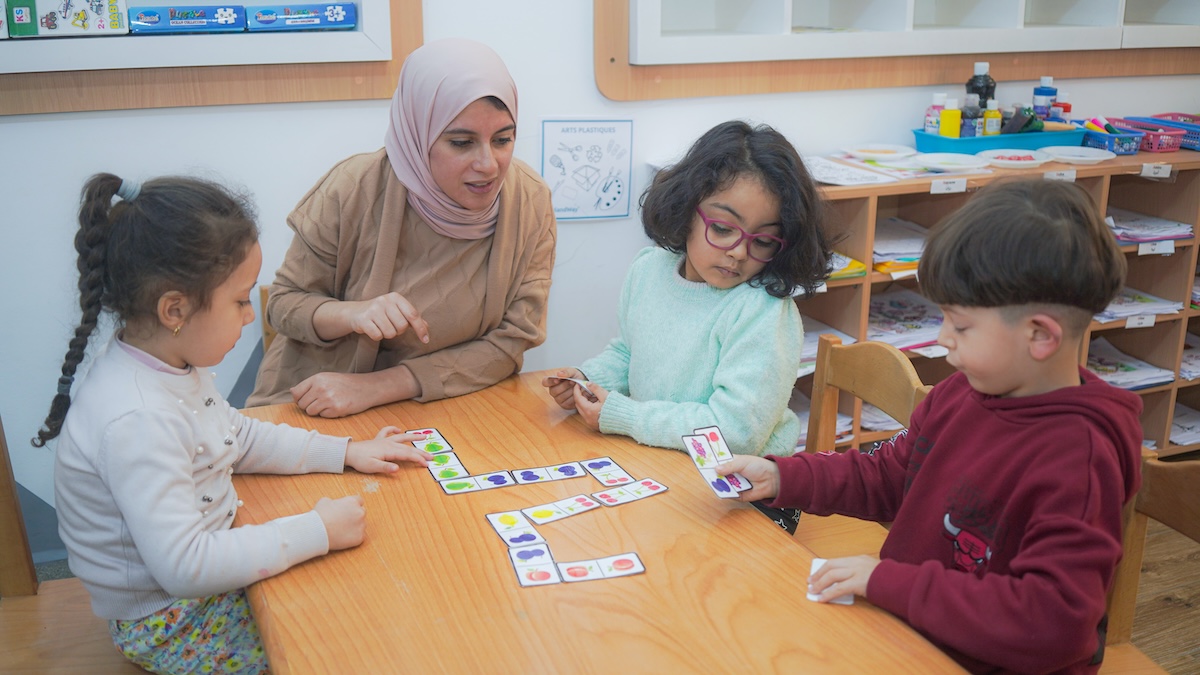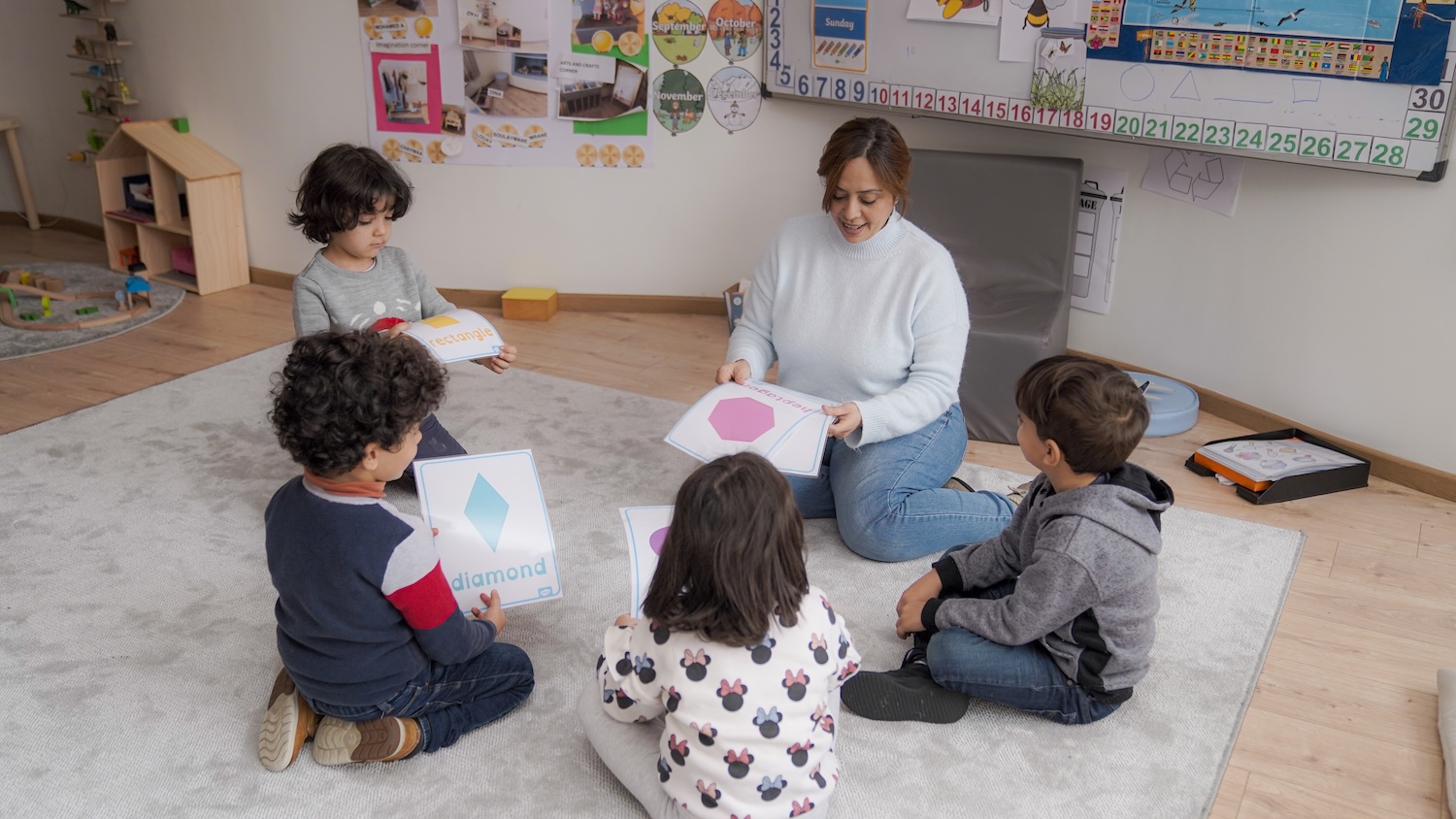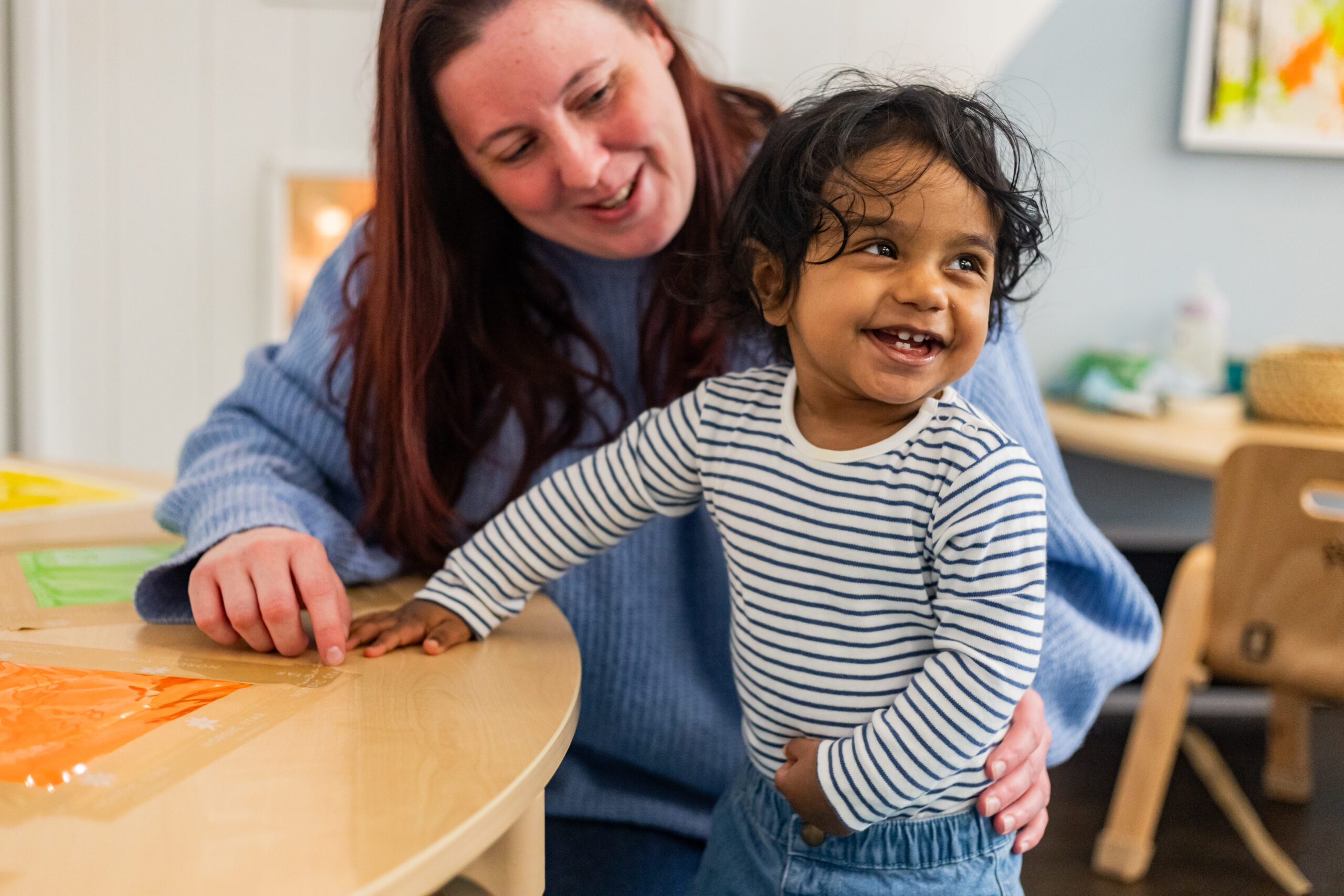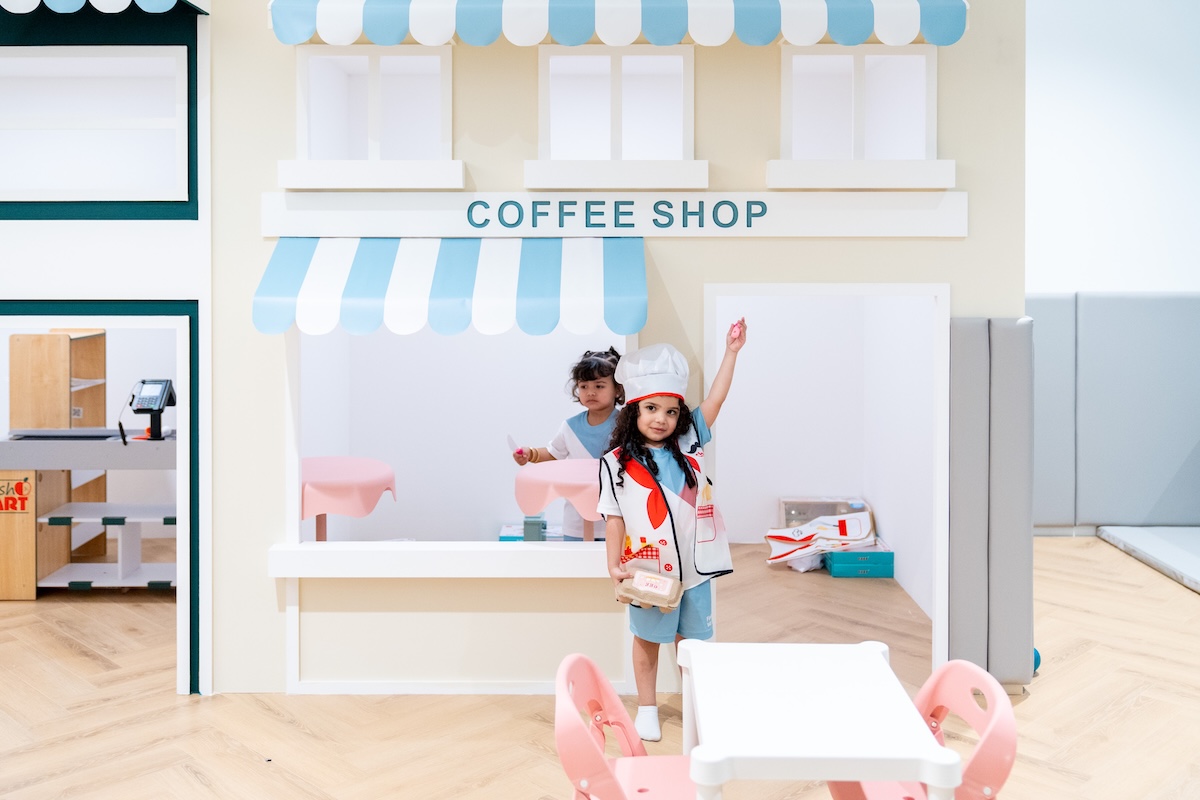In the early years of childhood, learning should feel like play. Maths, in particular, can often sound intimidating to both children and adults. But what if we said maths could be introduced in a joyful, hands-on way? That’s where playful preschool activities come in.
Play is a natural way for children to learn and develop. By incorporating mathematics into familiar, everyday situations, learning becomes more meaningful and fosters a positive attitude towards the subject. These playful activities help children develop core mathematical skills such as counting, sorting, measuring, and recognising patterns. In this article, we’ll explore creative ideas and expert-backed methods to make early maths learning a natural part of everyday preschool life.
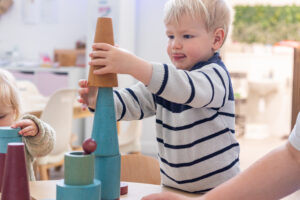
The power of play in early maths learning
What research says
Studies consistently show that children learn best when they are curious, engaged, and enjoying themselves. According to research from the University of Cambridge, children who experience play-based maths learning tend to develop a deeper understanding and greater confidence over time than those taught through more formal approaches.
Table: Comparing Retention Scores
| Teaching Method | Retention After 1 Week | Retention After 1 Month |
| Traditional Worksheets | 45% | 28% |
| Play-Based Activities | 72% | 58% |
Cognitive benefits of playful learning
Play stimulates multiple parts of the brain, encouraging problem-solving, attention to detail, and logical thinking. When a child is engaged in sorting coloured blocks or building a tower by size, they’re not just playing but building a mathematical foundation.
Playful preschool activities for maths skills
Children learn best when maths is part of everyday life, not something separate or forced. The following activities demonstrate how maths can be integrated into daily routines in simple and engaging ways.
Counting and number recognition
Counting should be a regular part of the day. For instance, you might display a picture of a tree in the classroom and change the number of apples on it each day. Children can be encouraged to notice and count them. During transitions, count how many children are lining up or how many shapes they can spot along the way.
Singing songs like Five Little Monkeys or One Elephant Went Out to Play is another easy way to practise numbers. Board games that use dice are also excellent for building counting skills and recognising numbers.

Sorting and classifying
Tidying up time offers a perfect chance to practise sorting. Ask children to group toys by colour, size, or category. This helps them develop an early understanding of sets, patterns, and classification.
Measuring and Comparing
Measuring can be introduced through everyday play. Children might compare the height of different toys, use cups during water play to measure and pour, or line up objects from shortest to tallest. These simple comparisons support early concepts of quantity and size.
Patterns and Sequencing
Learning patterns and sequences begin with using pictures to show everyday activities to children, so that the routines are arranged in a pattern. Clapping games with repeating sequences, or arranging toys in ABAB or ABC patterns, can also help children begin to recognise and predict patterns.
Outdoor maths adventures
Maths doesn’t have to stay inside. Outdoors, children can count leaves, stones, cars, or street signs. Using chalk, they can draw shapes and numbers, or play hopscotch with numbered squares. Movement and exploration make maths more engaging and memorable.
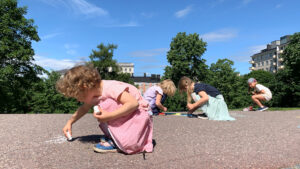
Tips for educators and parents
How to make maths engaging
- Let children lead the play and follow their interests.
- Use real objects like blocks, cups, sticks, buttons for counting and building.
- Be patient. Learning takes time, and making mistakes is part of the process.
Common mistakes to avoid
- Don’t overcomplicate things. Keep language simple and relatable.
- Avoid putting pressure on children to “learn” maths. Let it happen naturally.
- Don’t miss everyday moments for learning, maths is all around us.
Recommended resources and inspirations
Looking for tools and inspiration? These trusted sources offer fantastic ideas for enhancing maths through play:
- “How Children Learn Maths” by Kathy Richardson
- National Geographic Kids – Maths games and puzzles
- BBC Tiny Happy People – Child development resources
- The Guardian – Education – Articles on early years and learning trends
FAQ – Preschool maths and play
Q1: Can young children really understand maths through play?
Yes. When children count blocks or sort toys by colour, they’re engaging with core maths skills in a meaningful, age-appropriate way.
Q2: How often should preschool activities include maths?
Ideally, every day but they don’t need to be formal. Even ten minutes of counting or shape-spotting during play can make a difference.
Q3: What tools work best for maths play?
Simple, everyday items: dice, toy animals, pegs, cups, spoons, anything that can be grouped, counted, or compared.
Conclusion: maths can be a joyful start
Young children don’t need worksheets or tests to learn maths. They need space to play, explore, and make sense of the world around them. With songs, stories, natural materials, and real-life experiences, we can help children see maths not as something to fear but as something fun, familiar, and part of everyday life.
